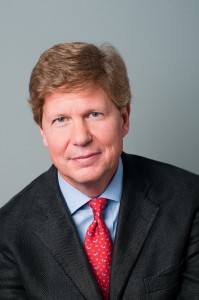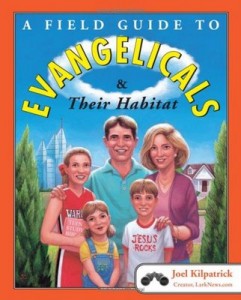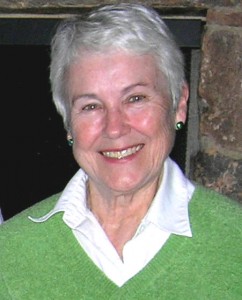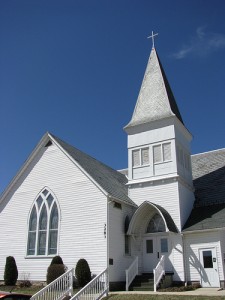evangelicalism
What was most telling about the disagreement between the two men was their discussion of Luke 4. Mohler argued the passage should be understood in light of how he interpreted the preaching and teaching of Paul and the other apostles. This means that when Jesus said that he came to bring good news to the poor that good news was personal salvation.
Wallis argued that yes, personal salvation is one part of that good news, but that the other part is the Kingdom of God breaking into the world and transforming societal relationships as well. When the Gospel is proclaimed, it is good news for a poor person's entire being, community and world -- not just his or her soul.
First, it was encouraging to hear Mohler spend a lot of time emphasizing that working for justice is essential to fulfillment of the Great Commission. Throughout the night he repeated his concern that a lot of Churches are REALLY bad at making disciples who actually do the things Jesus told us to do. As the president of one of the largest seminaries in the world, it will be interesting to see if he is able to train a generation of pastors who will do things differently. My concern is that he is missing the connection between his theology and the failure of Christians to actually do justice.
The reason the word Evangelical has become so poisonous is because the answer to the above question comes from a conversion-based model of cultural engagement - political, theological and social. Too many Christians believe, and have wrongly been taught, that those "others" and "opposites" who have made an active choice not to believe in "our" teachings are justifiably: 1) left to their own devices as we wash our hands of them because of their bad choice (think in terms of blood-on-their-own-head); or 2) uninformed, so much so that their "no" is an illegitimate answer.
Evangelicals care more about positions -- whether progressive or conservative -- than people. We lack nuance. We have become either all Scripture or all Justice. I don't know where the balance was lost in terms of holding Scripture in high authority and, simultaneously, loving with reckless abandon?

Makoto Fujimura via www.makotofujimura.com
Why I’m not an evangelical … and why I am:
“Evangelical” is a dirty word in the New York art world. A friend, an artist, told me that before she understood the claims of the Bible, she thought Christianity was a weird political group, and evangelicals the most extreme and terrifying. Whenever this word is raised, the next statement is “oh no, you are not one of them, are you?!”
Then, I usually say,“well, it depends on what you mean by the word ‘evangelical,’” followed by a confession, “I am not sure if I am an evangelical but let’s do talk about what the word actually means.”
People often assume that I am of the evangelical persuasion because I have been associated with many churches and Christian organizations. I just completed a major project for the 400th Anniversary of King James Bible. I was even appointed by President George W. Bush to the National Council on the Arts. People in the art world assume that if you have anything to do with President Bush and the Bible then you must be an evangelical.
Adam Phillips is a Evangelical Covenant Church minister and director of faith mobilization for the ONE Campaign, www.one.org.
This video is the latest installment in an ongoing series at God's Politics where we've asked leading clergy, writers, scholars, artists, activists and others who self-identify as "evangelical" to answer the question, "What is an Evangelical?"
The Christian world is broad and spacious, and within its circumference, like a large bowl holding a variety of colorful fish, swim a surprisingly diverse spectrum of believers. The secular media mistakenly seem to view "the evangelical movement" as a sort of monolithic structure akin to a well fortified garrison ranged to repel the attacks of "liberals" or "progressives" or "mainline churches." Or a right-wing political force often equated with Republicanism.
 The puzzle here is not that readers of the Bible would tilt toward the political left. That, for me, as well as for thousands of other American evangelicals, is self-evident. Jesus, after all, summoned his followers to be peacemakers, to turn the other cheek, to welcome the stranger and to care for “the least of these.” He also expressed concern for the tiniest sparrow, a sentiment that should find some resonance in our environmental policies.
The puzzle here is not that readers of the Bible would tilt toward the political left. That, for me, as well as for thousands of other American evangelicals, is self-evident. Jesus, after all, summoned his followers to be peacemakers, to turn the other cheek, to welcome the stranger and to care for “the least of these.” He also expressed concern for the tiniest sparrow, a sentiment that should find some resonance in our environmental policies.
No, the real conundrum lies in the subtitle the editors of Christianity Today assigned to Franzen’s article, which was titled, “A Left-Leaning Text.” Adjacent to a picture of a Bible tilted about 45 degrees to the left, the editors added the subtitle: “Survey Surprise: Frequent Bible reading can turn you liberal (in some ways).”
The fact that anyone should register surprise that the Bible points toward the left should be the biggest surprise of all.
 Most of my friends knew evangelicalism only through the big, bellicose voices of TV preachers and religio-political activists such as Pat Robertson, the late Jerry Falwell and James Dobson. Not surprisingly, my friends hadn't experienced an evangelicalism that sounded particularly loving, accepting or open-minded.
Most of my friends knew evangelicalism only through the big, bellicose voices of TV preachers and religio-political activists such as Pat Robertson, the late Jerry Falwell and James Dobson. Not surprisingly, my friends hadn't experienced an evangelicalism that sounded particularly loving, accepting or open-minded.
After eschewing the descriptor because I hadn't wanted to be associated with a faith tradition known more for harsh judgmentalism and fearmongering than the revolutionary love and freedom that Jesus taught, I began publicly referring to myself again as an evangelical. By speaking up, I hoped I might help reclaim "evangelical" for what it is supposed to mean.
The evangelical world expands to a far-off horizon and the topographical valleys and peaks cover landscapes that are both long and wide. Many in the media seem to have little knowledge of how large of a space the evangelical map covers. So, with this said, I welcomed Ross Douthat's thoughts in Monday's New York Times. His column, "American Theocracy Revisited," places good markers on the fears that Rick Perry and Michelle Bachmann's presidential runs are nothing more than an attempt at theocracy.
In much of the coverage of these two campaigns, the evangelical world gets flatten, stereotyped, and portrayed as only coming from one narrow point. Whether or not you agree with this view, the fact remains that any group that includes Miroslav Wolf, Jim Wallis, RC Sproul, Rick Warren, Joyce Meyers, Philip Yancy, Chuck Missler, Rob Bell, Albert Mohler Jr, TD Jakes, Amy Grant, Tony Campolo, Lucy Swindoll, Debrah Joy Winans, and so many more hues and colors of evangelicalism should not be placed in one bag and shaken into one lumpy mess, while saying that any one of their diverse views politically are the one true color. I know many will view this list and say who should or should not belong, and then justify their choices. A coherent political agenda could not be drawn from such a list of people. But following Jesus and making Jesus known in the world is at the core of each of these people's identity. Many on the list may disagree as to the best way to provide for the widows and orphans, but all would agree that we must care for them.
"Do you think God sent Hurricane Irene?" a young man asked me with a curious look in his eyes that was as innocent as it was pensive.
My mind flashed back to a headline I remembered reading yesterday about Glenn Beck pronouncing the hurricane as "a blessing" from God.
As I heard the kid's question, my heart sunk, as I thought of all the rhetoric that has made God out to be a monster, or at least a punitive judge on a throne ready to zap folks with lightening bolts or hurricanes
A week or two after the 2004 election, I was dining with some friends in New York when the conversation turned to religion and politics -- the two things that you're never supposed to discuss in polite company.
George W. Bush had just been re-elected with the help of what was described in the media as "evangelical voters." And knowing that I am an evangelical Christian, my friends were terribly curious.
"What, exactly, is an evangelical?" one gentleman asked, as if he were inquiring about my time living among the lowland gorillas of Cameroon.
I suddenly found myself as cultural translator for the evangelical mind.
"As I understand it," I began, "what 'evangelical' really means is that a person believes in Jesus Christ, has a personal relationship with him and because of that relationship feels compelled to share their experience of God's love with other people. "How they choose to share that 'good news' with others is entirely up to the individual. Beyond that, the rest is details and style."
[Read more of this blog conversation in response to the Sojourners magazine article "
[Read more of this blog conversation in response to the Sojourners magazine article "


